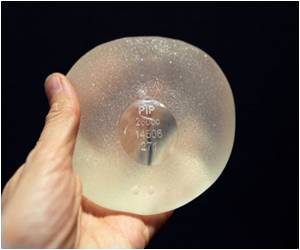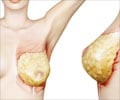
But new information collected by the Daily Star Sunday shows experts could not identify some of the chemicals used in them.
In one implant, 37 chemicals were found but only four had a match of higher than 50 percent to any known chemical. Of the remaining 33 one had just a 9 percent match to a known chemical.
That chemical has hallucinogenic properties - but an expert told the paper that the official match was "way off".
Scores of others "identified" had low matches to chemicals.
"You have to question the identifications that have been put against what was found," said the expert who looked at the results for the Daily Star.
Advertisement
"But there are some things there around 9 percent which gives no real chance of identification at all," the expert stated.
Advertisement
Preliminary findings have been given to Government health bosses. A summary released to the public sought to play down fears, with experts saying the levels of chemicals found do not present a significant risk to health.
But the chemistry professor interviewed by the paper said he believed much more analysis of exactly what is in PIPs is needed.
Other tests have already revealed PIPs, which were fitted to around 47,000 British women, are up to six times as likely to rupture as other brands.
Some of the chemicals part- identified are used in plastics and adhesives.
Another can be corrosive in sufficient quantities and some can cause severe injury if inhaled or ingested.
The expert continued: "The percentage match needs to be higher to be sure what you are dealing with. And, regardless of the size of some of these components, a lot more needs to be done to find out what impact they may or may not have.
"While some of these chemicals may be present in cosmetics and such like, they are not inside the body where they can be leaching out.
"If implants are rupturing then clearly that material gets into contact with the body very rapidly - but how quickly it is taken up into the bloodstream needs to be known. There are lots of further questions I would be asking," the expert added.
On the other hand women who spoke to the paper are convinced PIPs have caused major health problems.
Gail Coxon, 38, told the paper that her health had "dramatically improved" after her PIPs were removed.
The mum-of-three, of Runcorn, Cheshire, said she suffered a catalogue of illnesses after having her implants fitted six years ago.
Others complain of a range of symptoms and how they are suffering "extreme anxiety" as they battle to have their implants removed.
The MHRA says work is continuing "to provide a more complete picture of the chemical and toxicological profile of PIP silicone".
Source-ANI














